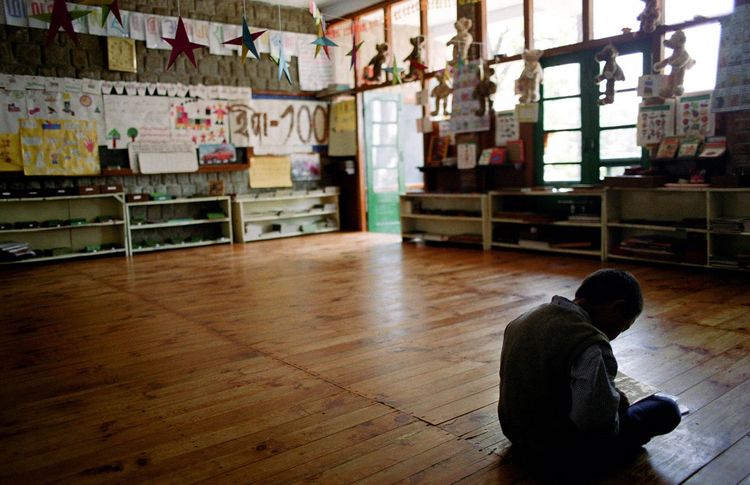Deploying Deep Ecology to Address the Ecological Crisis: A Reflection

🌳 This blog post was written by Notion AI, pulled directly from a six page paper I wrote for a class assignment based on the text book, Deep Ecology for the 21st Century by George Sessions. I also asked the AI to pull action steps from my essay for everyone looking to sprinkle a little Deep Ecology into their daily lives. The AI bot did not write my paper, but the summaries below (which make me sound way savvier than I really am) and the action steps are impressive. The thing I dig about the Notion AI is that it’s pulling from my own work and it is not sending my content to a larger LLM. And yes, I’m the nerd who read the terms of service before I used the AI. I did not edit any of the copy below that the AI bot created.
The essay entitled "Deploying Deep Ecology to Address the Ecological Crisis" is a thought-provoking piece that delves into the fundamental principles and practices of the Deep Ecology movement. The author highlights the importance of personal and collective action in addressing the ecological crisis that is currently affecting our planet.
One of the main points made in the essay is that the Deep Ecology movement encourages individuals to view themselves as a part of the entire ecosystem, rather than as a separate entity seeking to exploit natural resources for profit and gain. This shift in perspective can lead to a greater understanding of the interconnectedness of all living things and a greater awareness of the impact of human actions on the environment.
The essay also emphasizes the importance of taking action to alter societal structures and promote sustainable living practices. By living simply and creating a balance between needs and wants, individuals can minimize their impact on the planet and set an example for others to follow. The essay also highlights the potential for changing societal narratives to shift popular beliefs about the natural resources we rely on for our survival.
One aspect of the Deep Ecology movement that resonates deeply with the author is the emphasis on decentralization and the negative impacts of large centralized systems. By promoting decentralization, the movement seeks to create a more secure and sustainable system that is less vulnerable to attacks from nation-states and other threats.
Overall, the essay provides a compelling argument for the importance of the Deep Ecology movement in addressing the ecological crisis. By promoting a more holistic view of the world and encouraging sustainable living practices, the movement has the potential to make a significant impact on the health of our planet.
As individuals, we can all play a role in promoting the principles and practices of Deep Ecology in our daily lives. Whether it is by living simply, advocating for sustainable practices, or promoting decentralization, every action we take can help to create a more sustainable future for ourselves and for future generations.
In conclusion, the essay "Deploying Deep Ecology to Address the Ecological Crisis" provides a valuable perspective on the importance of the Deep Ecology movement in addressing the ecological crisis. By promoting a more holistic view of the world and encouraging sustainable living practices, the movement has the potential to make a significant impact on the health and well-being of our planet. As individuals, we can all play a role in promoting these principles and practices in our daily lives, and in doing so, we can help to create a more sustainable future for ourselves and for future generations.
Action Steps (Written by Notion AI pulled directly from my original Deep Ecology essay for a class assignment)
- Start by assessing your daily life and identifying areas where you can reduce consumption and waste, such as using reusable bags, water bottles, and containers.
- Consider downsizing your living space or moving to a more sustainable location such as a tiny house or eco-village.
- Reduce your reliance on technology by limiting screen time, disconnecting from social media, and choosing low-tech alternatives.
- Embrace a plant-based diet or reduce your meat and dairy consumption to reduce your carbon footprint.
- Choose to walk, bike, or use public transportation instead of driving a car whenever possible.
- Support local farmers and producers by purchasing food from farmers markets and co-ops.
- Learn to repair and repurpose items instead of buying new ones, and opt for secondhand items when possible.
- Reduce your energy consumption by turning off lights and unplugging electronics when not in use, and investing in energy-efficient appliances.
- Practice mindfulness and gratitude by spending more time in nature, meditating, and cultivating a deeper connection with the natural world.
- Consider joining a community garden, participating in a food-sharing program, or volunteering with local environmental organizations to have a positive impact on your community and the planet.





Member discussion